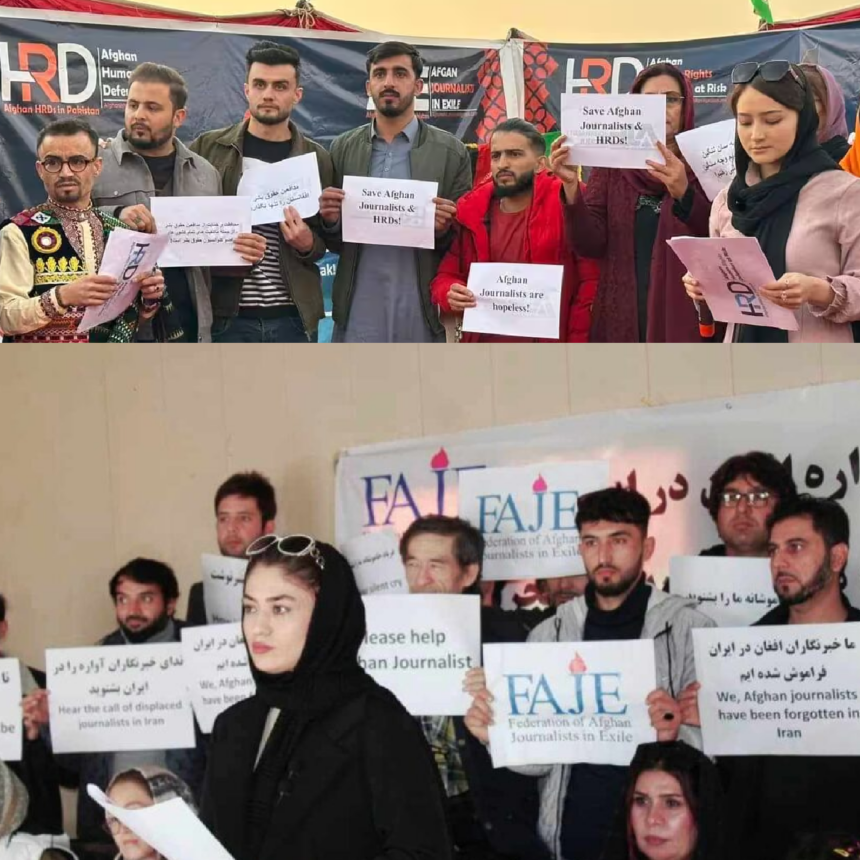RASC News Agency: Nearly four years after the Taliban’s reconquest of Afghanistan, dozens of Afghanistani journalists and media professionals once the voice of a free press in their homeland now find themselves trapped in a perilous limbo in neighboring Pakistan. Stripped of legal certainty, subjected to constant surveillance, and haunted by the specter of forced deportation, they face the chilling prospect of being returned to the very regime that dismantled the foundations of free expression and institutionalized hostility toward truth. For these journalists, deportation is not a bureaucratic procedure it is a calculated act of betrayal, a return to the shadow lands of censorship, persecution, and violence. “Sending us back is not repatriation; it is the deliberate delivery of our lives into the hands of those who have outlawed truth,” says one veteran reporter now in hiding. “Under Taliban rule, journalism is not a profession it is a punishable crime.”
In Pakistan, the legal avenues for Afghanistani asylum seekers including those accredited by international media watchdogs have all but collapsed. Visa renewals have been indefinitely suspended. Arrests and targeted detentions are rising sharply, accompanied by the swift deportation of many back across the border. Families now live as fugitives, crammed into hidden safe houses by night and wandering in search of temporary refuge by day. While exiled journalists remain grateful for the hospitality shown by ordinary Pakistani citizens, they stress that the Pakistani state must uphold international human rights obligations and halt expulsions. Their plea is urgent: intervention by Islamabad, by the international media community, and by global rights bodies is the only shield standing between them and a regime that has made the silencing of independent journalism a cornerstone of its governance.
The Afghan Media Support Organization yesterday renewed its appeal to Pakistan and Iran to immediately cease the detention and deportation of Afghanistani journalists. In a recent virtual assembly with exiled reporters, it documented an escalating crisis: expired visas that cannot be renewed; the wholesale refusal by local police to honor official documentation from international agencies; escalating security harassment; and crushing economic precarity. Thousands of Afghanistani journalists remain stranded in Pakistan and Iran, awaiting resettlement to Europe or the United States. But asylum processing has slowed to a bureaucratic crawl, prolonging their vulnerability and deepening their exposure to the very dangers they fled.
Reports from Afghanistan’s border provinces confirm that the Taliban are not merely targeting former security forces; journalists now rank as one of their primary objectives for detention and reprisal. Inside the country, press repression has reached its most severe point in decades: independent outlets have been shuttered, reporters detained without due process, and media coverage subjected to suffocating censorship. Investigative reporting, once a fragile lifeline for public accountability, has been driven underground or extinguished entirely. The Taliban’s systematic hostility toward the press is neither incidental nor reactive; it is a deliberate strategy. By extinguishing the free press, the regime seeks to erase independent narratives, silence dissent, and monopolize the architecture of truth itself.
Media rights advocates and human rights defenders are united in their assessment: deporting exiled journalists now would be tantamount to delivering them into the machinery of a state where neither personal safety nor professional existence can be preserved. In the words of one displaced editor:
“If the international community allows our forced return, it will not be repatriation it will be complicity in our destruction.”






